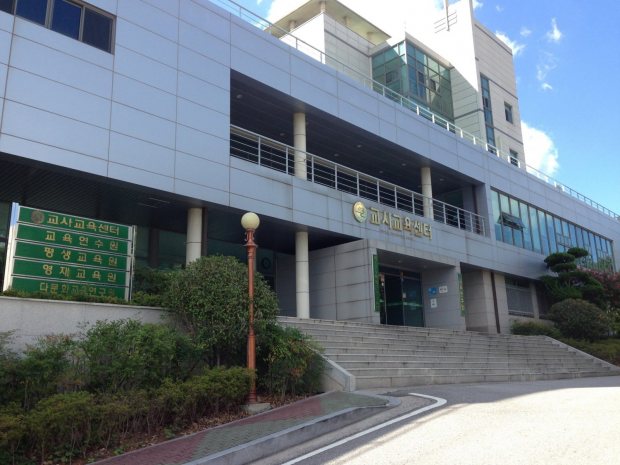
Gwangju-Jeonnam Chapter November Meeting
.
----- Morning Reflective Practice Session -----
Topic: Working Through Teacher-Student Conflicts
Session Facilitator: Bryan Hale
Time: 11:00 am - 12:30 pm
NEW Location: Aldersgate (올더스게이트), cozy cafe near GNUE. Ground floor of 광주우리교회 Building.
----- Main Meeting Schedule -----
Time: Saturday, November 21, 2015, 1:45 - 5:00 pm
NEW Location: Gwangju National University of Education (GNUE), Teacher Training Center (교사교육센터) 1st Floor; Room 811. Detailed directions HERE.
1:45 pm: Sign-in and Meet-and-Greet (Admission is free. Future membership is welcomed.)
2:00 - 2:50 pm: Workshop Presentation
Lesson Planning 201: Beyond the Basics
Lindsay Herron (Gwangju National University of Education)
(Short Stories and L2 Learners by Tyson Vieira has been rescheduled for December.)
2:50 - 3:10 pm: Refreshment Break
3:10 - 4:00 pm: Workshop Presentation (cont.)
Lesson Planning 201: Beyond the Basics
4:00 - Chapter Elections
4:15 - 5:00 pm: Swap-Shop Presentations
Share your Teaching Ideas, Classroom Activities, and Teaching Wisdom with the group.
(Everyone is encouraged to share. Short tidbits are welcomed. Handouts also welcomed.)
5:00 pm: Announcements / Drawing for Door Prizes / Closing
Presentation Synopsis and Presenter Bio-Sketch
.
Lesson Planning 201: Beyond the Basics
Lindsay Herron
So you’ve got the basics of lesson planning down. You can now put together a solid lesson pretty quickly, moving from an introduction and presentation of the target language to controlled and guided practice, finishing with production and review, all more or less in the time required. But are you doing all you can to ensure your lesson’s success? This workshop will touch on several areas of lesson planning that new teachers might wish to further explore—and more experienced teachers might wish to review.
First, do you include anticipated problems and solutions in your lesson plan? This is a simple step teachers can take to ensure smooth sailing during class time. There are a wide variety of possible problems to consider, from equipment malfunctions (e.g., the computer might not work, so the PowerPoint game you’ve slaved over might be rendered useless!) and organizational issues (e.g., there might be an odd number of learners, but you’re planning a pair work activity) to linguistic problems (e.g., students might already know gonna but don’t understand that it includes two words, going and to) and individual problems (e.g., one particular student tends to answer every question).
When considering problems students might encounter when doing a particular activity, it’s also useful to take into account different types of task demand. We’ll look specifically at six types of task demand: cognitive (for example, graphical representations and cultural schema), language (including pronunciation and grammar), interactional (issues related to pair work, group work, etc.), metalinguistic (related to the technical terms used to describe language), involvement (student interest level), and physical (motor skills, sitting still for a long time, etc.). There are certain steps every teacher can take to help students as they undertake each task; we’ll brainstorm possible support steps for each type of task demand.
Working with a textbook or workbook, in particular, requires a certain level of flexibility and innovation, as textbook exercises might score particularly high in terms of “involvement” task demand—that is, they’re often boring. We’ll explore possibilities for enlivening a sample workbook exercise.
There are other questions that conversational English teachers might ask themselves as they design their lesson and consider task demands—for example, Is the task communicative and meaningful? and Is the lesson balanced? We’ll discuss the difference between communicative activities and non-communicative activities, examples of meaningful and personal exercises, and a wide variety of characteristics that teachers might wish to ensure are balanced in a class. By the end of this workshop, participants will be eager to take a closer look at their own lessons, identify potential problem areas, and prepare solutions and supports, ultimately crafting a more balanced, effective, and engaging class for all.
The Presenter
 Lindsay Herron has been a visiting professor at Gwangju National University of Education in Gwangju since 2008. Prior to that, she taught English on a Fulbright grant at a boys’ high school in Jeju-do, Korea. She has a master’s degree in language education from Indiana University-Bloomington, a master’s in cinema studies from New York University, bachelor’s degrees in English and psychology from Swarthmore College, a CELTA, and the CELTA YL Extension. She is the treasurer of the Gwangju-Jeonnam chapter of KOTESOL and the newly elected national president of Korea TESOL.
Lindsay Herron has been a visiting professor at Gwangju National University of Education in Gwangju since 2008. Prior to that, she taught English on a Fulbright grant at a boys’ high school in Jeju-do, Korea. She has a master’s degree in language education from Indiana University-Bloomington, a master’s in cinema studies from New York University, bachelor’s degrees in English and psychology from Swarthmore College, a CELTA, and the CELTA YL Extension. She is the treasurer of the Gwangju-Jeonnam chapter of KOTESOL and the newly elected national president of Korea TESOL.



